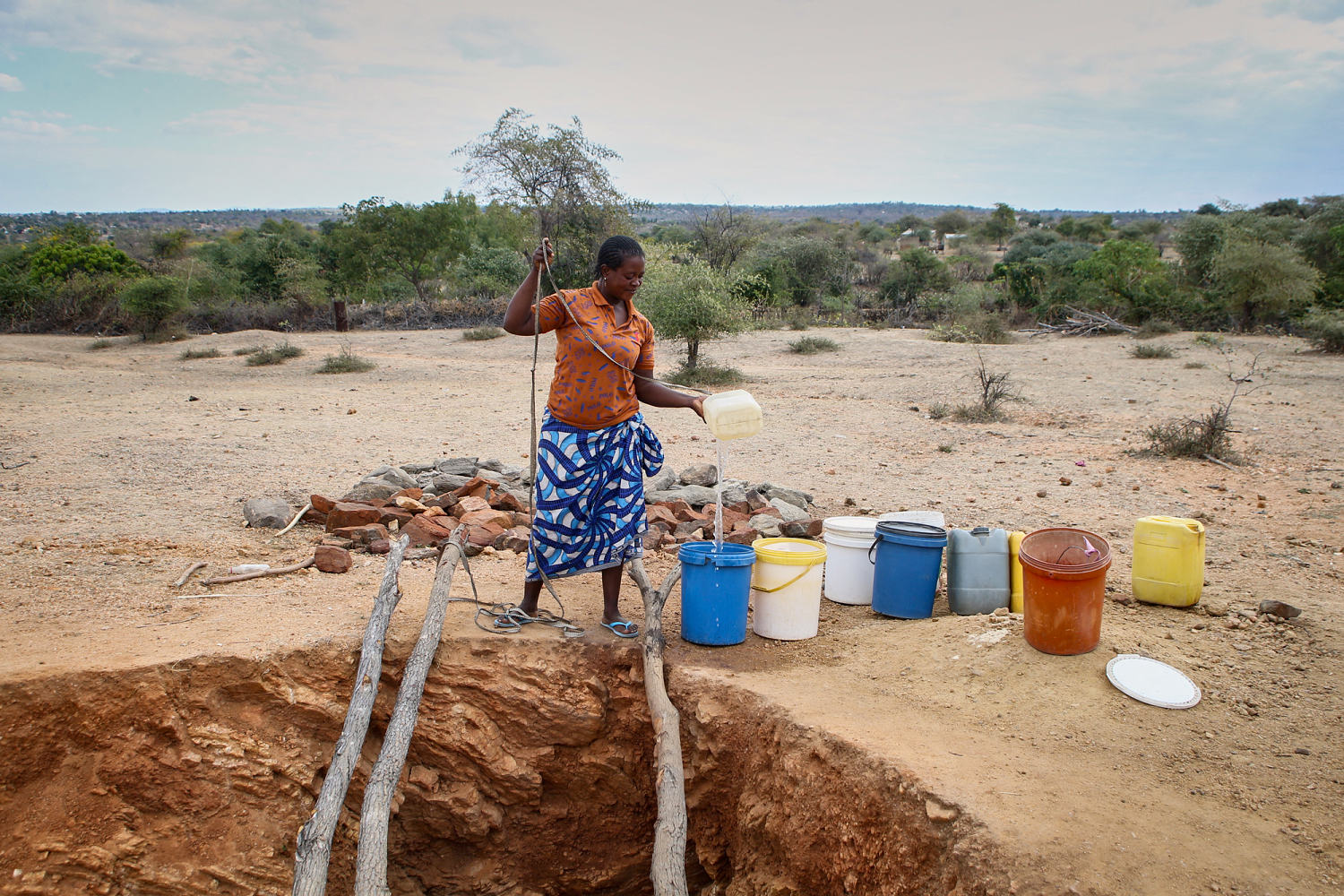
Nearly 70 million people in southern Africa are suffering from the effects of an El Niño-induced drought, according to the Southern African Development Community, resulting in widespread food shortages and even forcing some families to eat grass seed.
Zambia and Zimbabwe have declared the hunger crisis a state of disaster, while Lesotho and Namibia called for humanitarian support.
In landlocked Malawi, the situation is particularly acute, with almost half the nation’s population — an estimated 9 million people — in need of humanitarian assistance, according to a UNICEF report. Half of those are children, as the worst midseason dry spell in over a century devastates a nation where over 80% of people rely on rain-fed agriculture.
The landscape stretching around Jangiya, a small farming village of just 80 households in southern Malawi, is parched and barren. Normally, it’s lush with crops and fresh produce at the end the rainy season, but this year little trace of green remains after a devastating, monthslong drought.
Some families have begun eating grass seed plucked from nearby fields after their crops withered in the scorching heat. In April, local media reported that 17 Malawians were hospitalized after digging up poisonous tubers in desperate hunger.
Heads of state from the 16-nation Southern African Development Community meeting in Zimbabwe’s capital Harare said Saturday that the drought, which began in early 2024, hit crop and livestock production, causing food shortages and damaged economies.
“2024 rainy season has been a challenging one, with most parts of the region experiencing negative effects of the El Niño phenomenon characterized by the late onset of rains,” said Elias Magosi, SADC executive secretary.
For subsistence farmers like Masautso Mwale, the drought, caused by a global weather system beyond his control and worsened by a warming climate he has contributed little to, has forced him to find other increasingly dangerous or damaging ways to survive.
“My life became unbearable during the drought,” he told NBC News on a telephone call in May, after harvesting just two bags of corn, far short of what he needs to feed him and his family until the rains come again in October. In a good year, he says, he harvests 18 bags of corn and cassava from his one-hectare farm in Jangiya.
To raise money to buy food for his family, he spends three days every two weeks cutting down trees in the forests on the mountains near his home.
Deforestation itself contributes to around 10% of global warming, according to the World Wide Fund for Nature, as carbon stored by trees is released into the air as carbon dioxide. Mwale knows it’s harmful, but drought has left him with few other options.
Selling charcoal is one of the few guaranteed ways to earn a living in a nation where nearly every household relies on firewood and charcoal for cooking and heating. Mwale sells three bags of charcoal for 5,000 Malawian Kwacha (about $3) each, enough to feed his family for a week.
“Given the hunger we are currently facing, there will be an increase in tree cutting for food this year,” he added.
